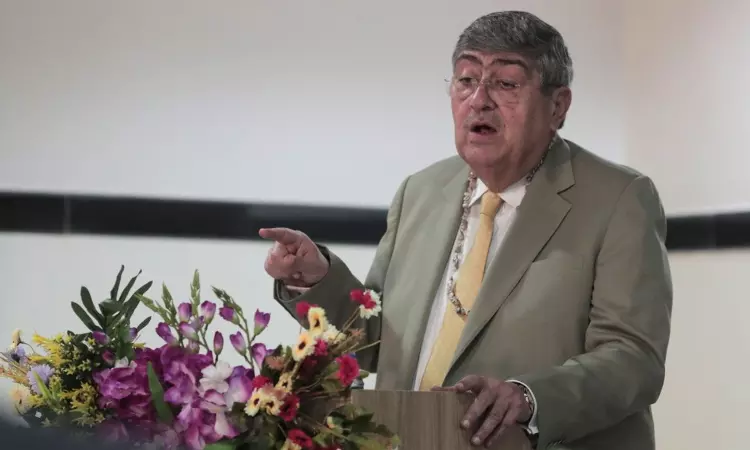Former SC Judge, Justice SK Kaul Advocates For Mediation Over Traditional Legal Process, Recommends Mediation Training for Judges
LIVELAW NEWS NETWORK
13 Feb 2024 11:01 AM IST

Former Supreme Court Judge, Justice S K Kaul, emphasized the expansive flexibility of mediation over traditional legal proceedings during his keynote address at a roundtable event hosted by the Bar Council of India Trust at the India International University of Legal Education and Research (IIULER) in Goa.
At the roundtable, Justice A K Sikri, former Supreme Court Judge currently serving as an International Judge at the Singapore International Commercial Court, also participated, endorsing the significance of mediation in the legal landscape.
Justice Kaul, who retired from the apex court in December, stressed the importance of incorporating mediation training programs for judges, highlighting that mediation allows parties to have direct control over the resolution process. He underscored that while the legal system sometimes fails to provide desired solutions due to its procedural constraints, mediation empowers parties to craft their own resolutions.
Reflecting on the evolution of mediation in India, Justice Kaul noted initial resistance from the legal fraternity but commended the profession for embracing it. He acknowledged the efforts of various mediation groups in introducing the concept to schools, emphasizing its grassroots growth from familial settings.
Contrary to viewing mediation as a substitute for legal frameworks like the Insolvency and Bankruptcy Code (IBC), Justice Kaul positioned it as a complementary tool, particularly beneficial in the pre-insolvency stage for financially distressed but viable businesses.
Describing mediation as a democratic process, Justice Kaul emphasized its role in fostering out-of-the-box solutions and maintaining confidentiality, essential for preserving business relationships and mitigating the risk of litigation.
He said, 'the flexibility of mediation is far wider. It is a party driven process and not a legal driven process from an outsider. Parties themselves can decide the procedure and how they would like to resolve it.' Justice Kaul also suggested taking advantage of the international norms in mediation as done during the drafting of the IBC in India. He recalled how the government initially was averse to creating a centralized mediation mechanism and was in favour of statute specific one.
Justice Kaul concluded by advocating for a paradigm shift towards mediation, emphasizing its inherent flexibility and capacity to empower parties in resolving disputes effectively.


